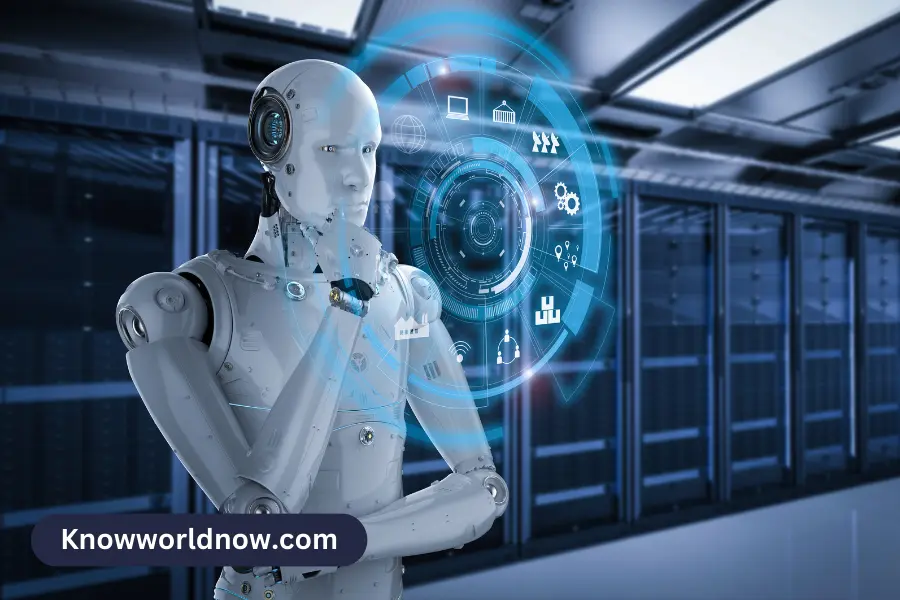Artificial intelligence (AI) is rapidly transforming the manufacturing industry by enabling new levels of automation, efficiency, and productivity. One area where AI has a particularly significant impact is in robotics, where AI algorithms are being used to enhance the capabilities of robots and make them more intelligent and responsive.
What is Artificial Intelligence, and Where Did it Come From?
Artificial intelligence (AI) refers to developing computer systems that can perform tasks that typically require human intelligence, such as visual perception, speech recognition, decision-making, and language translation.
The concept of AI has been around since the early days of computing, with pioneers like Alan Turing and John McCarthy proposing ideas for intelligent machines in the 1950s and 1960s. However, it was only in the advent of digital computers in the 1970s and the development of advanced algorithms and processing power that AI research began to make significant progress.
In the 1980s and 1990s, AI research became more focused on practical applications, such as natural language processing, computer vision, and robotics. During this time, machine learning techniques like neural networks and decision trees became popular for solving complex problems in areas such as pattern recognition, data analysis, and optimization.
In the 2000s and 2010s, the emergence of big data and cloud computing further accelerated the development of AI. With the ability to store and process massive amounts of data, AI systems could learn and improve their performance over time. The rise of deep learning, a subset of machine learning that uses neural networks with multiple layers, has enabled breakthroughs in areas like speech recognition, image analysis, and natural language processing.
Today, AI is rapidly advancing and being applied to various fields, from healthcare and finance to transportation and entertainment. With the continued growth of computing power and the development of new algorithms and techniques, the potential for AI to revolutionize our world is vast and ever-expanding.
The Role of AI in Robotics for Manufacturing
AI is being used in robotics for manufacturing in several ways. One critical application is machine vision, where AI algorithms enable robots to see and understand their environment.
This allows robots to identify objects, recognize patterns, and make decisions based on visual data. Machine vision can also improve the accuracy and precision of robotic movements, which is critical for many manufacturing applications like robotic arms.
Another area where AI is being used in robotics for manufacturing is predictive maintenance.
By analyzing data from sensors and other sources, AI algorithms can identify when a robotic system is likely to fail and recommend preventative maintenance before the failure occurs. This can help manufacturers avoid costly downtime and extend the lifespan of their robotic systems.
AI is also being used to optimize robotic movements and improve overall efficiency. By analyzing data from sensors and other sources, AI algorithms can identify patterns and trends in robotic movements and recommend changes to improve efficiency.
For example, AI can help robots move more quickly between tasks, avoid collisions, and optimize their movements to reduce energy consumption.
The Future of AI in Robotics for Manufacturing
The use of AI in robotics for manufacturing is still in its early stages, but it is expected to become increasingly important in the coming years.
As AI algorithms become more advanced and powerful, they will enable robots to become even more intelligent and responsive, further enhancing their capabilities and increasing their impact on the manufacturing industry.
One area where AI is expected to have a particularly significant impact is collaborative robotics, where cobots work alongside human workers to perform tasks. By using AI to enhance the capabilities of collaborative robots, manufacturers can create safer and more efficient working environments that combine the strengths of both robots and humans.
In the cannabis industry, a groundbreaking innovation takes the form of the pre roll infusion machine, a cobot seamlessly blending AI precision with human expertise, revolutionizing the production of infused pre-rolls. This integration ensures optimal quality and consistency in this rapidly evolving sector.
Will AI replace you?
It’s unlikely that AI will replace all human jobs, as many types of work require human creativity, emotional intelligence, and critical thinking skills that are difficult for machines to replicate.
However, AI is expected to automate many routine and repetitive tasks, such as data entry, assembly line work, and customer service, which could lead to significant job displacement in some industries.
The impact of AI on the job market is complex and multifaceted. It will depend on a range of factors, such as the type of work being done, the level of education and training required, and the ability of workers to adapt to new technologies and changing job demands.
Some experts predict that AI will create new types of jobs requiring skills such as data analysis, software development, and machine learning.
Others argue that there may be a shift towards more service-oriented jobs that require human interaction and personalization, such as healthcare, education, and the creative arts.
Ultimately, the impact of AI on the job market is difficult to predict with certainty. However, AI will significantly impact how we work and the types of jobs available in the future. It will be necessary for workers and businesses alike to adapt to these changes and prepare for the challenges and opportunities ahead.
Conclusion
In conclusion, AI plays a crucial role in the development of robotics for manufacturing, enabling robots to become more intelligent, responsive, and efficient.
As AI technology advances, we can expect to see even more innovative applications of AI in robotics for manufacturing, with the potential to transform the industry and create new opportunities for growth and development.




![F95Zone Games - The Ultimate Guide for 2021 [F95Z Guide] 5 F95Zone Games](https://knowworldnow.com/wp-content/uploads/2021/07/ArTtW5LrK3b-z-0-y-637f48d86203817a9042a857.webp)